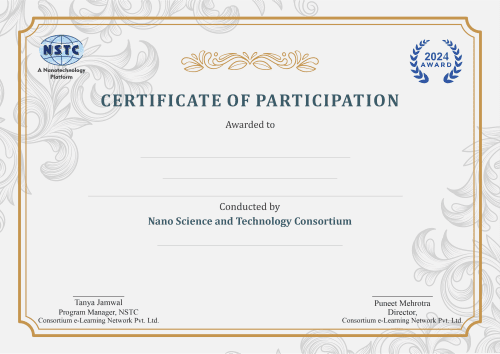Virtual Workshop
Cybersecurity Workshop
Cybersecurity: Your Shield in the Digital Age
Cybersecurity: Your Shield in the Digital Age
- Mode : Mode(Online)
- Type: Mentor Based
- Level: Moderate
- Duration: 105 Hours/day
- Timings: Indian Standard Timings 03:30 PM
Mode
Type
Level
Duration
Skills you will gain:
CAD/CAM (Computer-Aided Design/Computer-Aided Manufacturing)
About Workshop
An Information Security Awareness Workshop is a comprehensive training program designed to equip individuals with the knowledge and skills necessary to protect sensitive information and defend against cybersecurity threats. This workshop covers a wide range of topics, including the fundamentals of information security, common types of threats such as malware and phishing attacks, data classification, and best practices for password security. By participating in this workshop, attendees gain a deeper understanding of the critical importance of safeguarding data and systems, contributing to a more secure and resilient digital environment within their organization or community.
Aim: The aim of an Information Security Awareness Workshop is to educate participants about the importance of information security and provide them with the necessary knowledge and tools to recognize, mitigate, and prevent cybersecurity threats. By raising awareness and promoting good security practices, the workshop seeks to empower individuals to protect sensitive data, safeguard digital assets, and contribute to a more secure and resilient information environment within their organization or community. Ultimately, the goal is to reduce the risk of security breaches and enhance overall cybersecurity posture.
Workshop Objectives:
What you will learn?
Day 1: Introduction to Information Security and Governance
Session 1: Welcome and Workshop Overview
Introduction to the workshop objectives and structure.
Session 2: Information System Auditing Process
Overview of IS Audit Standards, Guidelines, and Codes of Ethics.
Introduction to Business Processes and Types of Controls.
Understanding Risk-based Audit Planning.
Session 3: Information System Auditing Process
Types of Audits and Assessments.
Session 4: Governance and Management of IT
Introduction to IT Governance and IT Strategy.
Overview of IT-related Frameworks and Standards.
Discussion on Organizational Structure.
Session 5: Governance and Management of IT
Briefly touch upon Enterprise Risk Management.
Laws, Regulations, and Industry Standards Affecting the Organization.
Day 2: Information Systems Development and Implementation
Session 6: Information Systems Acquisition, Development, and Implementation
Project Governance and Management.
Business Case and Feasibility Analysis.
System Development Methodologies.
Session 7: Information Systems Acquisition, Development, and Implementation
Control Identification and Design.
Discussion and questions.
Session 8:IS Operations and Business Resilience
Introduction to Information Systems Operations.
Common Technology Components.
Brief overview of Business Resilience.
Session 9: IS Operations and Business Resilience
Business Impact Analysis.
Data Backup, Storage, and Restoration.
Day 3: Information Security and Control
Session 10: Information Asset Security and Control
Information Asset Security Frameworks, Standards, and Guidelines.
Overview of Privacy Principles and Physical Access Controls.
Identity and Access Management.
Session 11: Information Asset Security and Control
Network and End-point Security.
Data Classification and Encryption.
Security Event Management.
Session 12: Information Asset Security and Control
Security Awareness Training and Programs.
Incident Response Management.
Mentor Profile

Mr. MOHAMMED ZEESHAN FAROOQ is an esteemed Professor in the Department of Information Technology (IT) at the prestigious Jawaharlal Nehru Technological University (JNTU). With over 15 years as a Trainer and Speaker, and two decades in IT and Oracle SQL and PLSQL Development, this professional is a seasoned expert. As a Research Scholar, they specialize in the dark web, holding a B.Tech and multiple Oracle SQL and PLSQL Development certifications. Their expertise includes Threat Intelligence, Web Application Vulnerability Testing, Automotive Oracle SQL and PLSQL Development, SOC Analysis, IoT Security, Dark Web Investigation, and more. They’ve delivered training globally to diverse sectors, earned certifications such as CISA and CEH, offer custom training programs, conduct takedowns for online abuse, and perform audits based on NIST 800-53, ISO 27001, and CoBIT standards.
Fee Plan
Student
INR 499/- OR USD 40
Ph.D. Scholar / Researcher
INR 1999/- OR USD 45
Academician / Faculty
INR 2999/- OR USD 50
Industry Professional
INR 4999/- OR USD 75
Important Dates
Registration Ends
20 Mar 2024 Indian Standard Timing 11:00 AM
Workshop Dates
20 Mar 2024 to 22 Mar 2024 Indian Standard Timing 12:00 Noon
Get an e-Certificate of Participation!

Intended For : Graduates, Post Graduates, Research Scholars, Academicians, Industry Professionals of Business Intelligence, Financial Analysis, Software Development, IT and Technology, Healthcare and Research, E-commerce and Retail
Career Supporting Skills
Cyber Security
